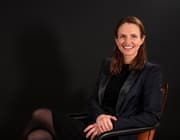Thomas Jensen - Bechtle: It's not about technology, but about business outcomes
Thomas Jensen, Bechtle's Executive Vice President, expects COVID-19 to have a major impact on all kinds of developments towards the modern workplace.
Bechtle AG is the international parent company of the Dutch IT companies ARP, Buyitdirect and Bechtle Direct, among others. Thomas Jensen, originally from Denmark, has been working there since 2018 after working at HP for a long time. His focus is on the intersection of strategy development and execution. He has contact with all 24 subsidiaries in 14 countries, including when it comes to the major transition in which all these companies are involved. "We are working on how we change from selling IT products to selling business outcomes."
Business outcomes
Business outcomes is the crucial term for him. “I have been working in IT for twenty plus years and the biggest weakness of both vendors, B2B and B2C providers is that we focus too much on products and technology. There’s not enough focus on what the customer truly needs. When our customers wake up in the morning, they’re not thinking "If only I had a new server in my data centre" or "If only I had a new PC" that would solve all my business problems. But they may be thinking "I wish I could do video meetings without disruptions and delays." I might be an IT enthusiast, but I don't fool myself into thinking that our customers are too.” “We need to start focusing on what we solve for our customer, like business productivity or modern collaboration!”
He gives a short example: “We have filled our schools with tablets, laptops and PCs, but the way we teach our children has not changed. We gave the teachers technology, but we did not help them to teach better by using the technology to improve pedagogical processes. As a result, technology distracts more than it helps. ”
COVID-19
Jensen sees a lot happening throughout the sector. “We are in a changing market. We have been saying that for many years, but the speed at which it is happening is even higher now. This is partly due to COVID-19. “Before COVID-19 there were changes happening already, but now those changes are accelerating. During this period we have noticed very clearly that working is more than just showing up at the office. Working from home has helped us in streamlining tasks. We now work in a different way. For example, for the first time in more than ten years, I haven't flown in three months. However, I can still do most of my work. I now do part of it more efficiently, because I can organize it differently. However, it is also clear, that certain elements of our day-to-day tasks require face to face meetings. Therefore, our learnings from this period is that we can do more tasks remotely and work more focused when in the office or at the go. This can actually contribute to a better work-life-balance and less pollution in our communities.”
Requirements are changing
According to Jensen, the way we work and the workplace in which we do it are transforming. “Our sector now employs five different generations: from baby boomers to generation Z and they have very different needs and preferences.
If we are working from home more often, we will see different requirements for the workplace of the future. “When the period of social distancing is over, less office space may be needed for traditional work desks. That space can be arranged differently, divided into different spaces, for brainstorms, scrum sessions and collaboration. I could clearly imagine a workplace where the sales organisation have preference to work in the office on Fridays, whilst being on the road (or virtually meeting) the rest of the week. Meanwhile, departments like HR or Finance may use the office space for their collaboration needs during Tuesdays and Wednesday, whilst working from home on their projects for the rest of the week. This way, we would combine the best of both worlds (based on our learnings from COVID-19) and at the same time promote more and better collaboration whilst saving CAPEX on real estate.”
More than technology
Jensen looks beyond than technology. For example, he also follows the developments around the four-day working week with great interest. It is being used in more and more places and, according to research, increases productivity and employee satisfaction. He also sees a clear role for Bechtle when it comes to non-technical developments. “At Bechtle we say: ‘Care for people, passion for IT’." We use technology and IT as a means to ensure progress. Progress in all areas. For example, I can see that we may expand our ecosystem of service partners with interior designers, because some adjustments in the design will make it much smarter to use a conference room, among other things.”
Bechtle recently started offering new propositions such as "Device as a service" and "Modern meetings". Jensen uses the latter as an example. “This also concerns business outcomes. During this period, everyone notices that too many meetings start late, because there are problems somewhere – typically related to technology. This adds up to a lot of hours of lost productivity for our customers. We have conceptualized and simplified the solutions. We offer four solutions: for huddle rooms and for small, medium and large meeting rooms. We have reduced it to the core. The customer no longer has to deal with individual products, vendor choice because the configurations are fixed and solely focused on how to increase efficiency and reduce productivity loss.
Accelerated introduction
COVID-19 also prompted Bechtle to adjust their launch timeline. “We planned to offer home offices in early 2021, but we are now accelerating that as our customers need a solution now. The same goes for mobile working." Bechtle changes and that is not always easy. “We have to use our passion for technology for something valuable and that is sometimes challenging. It takes some getting used to for customers, they are used to buying technology from us. But they will not benefit from technology alone if it is not translated into something that can really contribute to improvements of how they conduct their daily business.”
Written by Johan van Leeuwen




